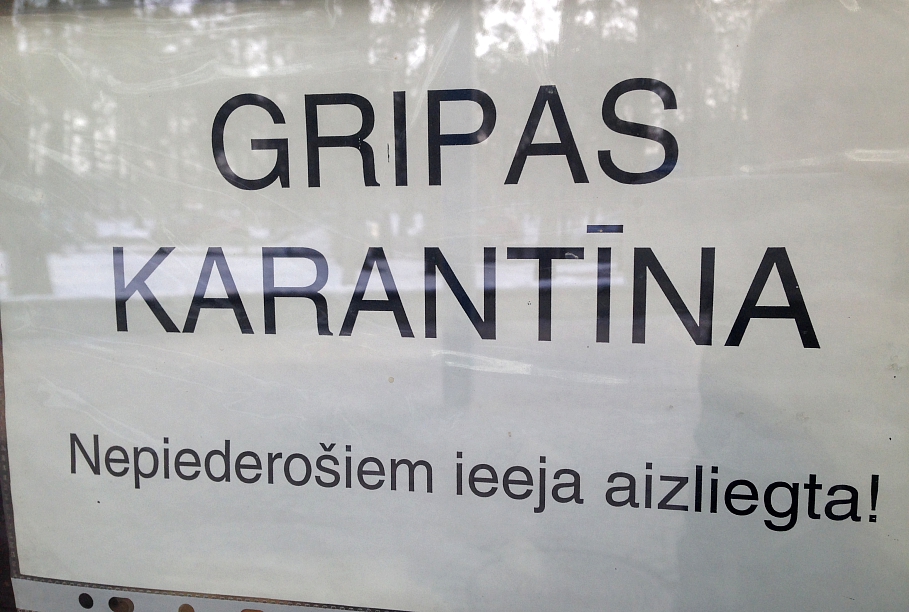The SPKC said that in one of the ten monitored areas – in Daugavpils – the number of patients treated at outpatient medical establishments with a diagnosis reached 384.1 cases per 100 000 inhabitants. Influenza cases were also registered in Liepaja, with an intensity of 39.6 cases per 100,000 inhabitants.
The average intensity in Latvia reached 56.7 cases per 100,000 inhabitants in Week 10 of 2022, the highest intensity since the beginning of the season. Children aged 5-14 years are more likely to suffer.
The SPKC said that 10 countries reported widespread influenza activity and average influenza intensity in week 9 of 2022: Estonia, France, Hungary, Ireland, Luxembourg, the Netherlands, Norway, Slovenia, Turkey and the United Kingdom (Scotland). Ten countries reported higher than 10% of positive samples: Slovenia (61%), Hungary (47%), France (46%), Luxembourg (41%), Norway (31%), Spain (28%), Switzerland (11%), the Republic of Moldova (10%) and the United Kingdom (Scotland) (10%). Both influenza A and B-type influenza viruses are identified, all monitoring systems dominated by A/H3.
The SPKC recalled that the most severely affected by influenza are elderly and people with chronic diseases such as cardiovascular, pulmonary and renal diseases, diabetes, oncology patients, patients with chronic infections and people with compromised immunity. The flu is particularly dangerous for small children and pregnant women.
Vaccination is the best protection against influenza and complications caused by influenza. Given that immunity occurs within a few days of vaccination and the spread of influenza usually lasts until the end of May, it is not too late to vaccinate against the flu. Currently, vaccination against influenza is paid for by the State to everyone, SPKC said.
The SPKC noted that if symptoms – cough, fever, or increased body temperature, severe headache, fatigue, runny – have to stay at home.
In order to avoid contamination, general measures should be followed: visiting public places as little as possible, face mask should be used correctly (covering the nose and chin), rooms should be regularly ventilated, hands washed frequently and carefully. In case of illness, contact your family doctor.



























